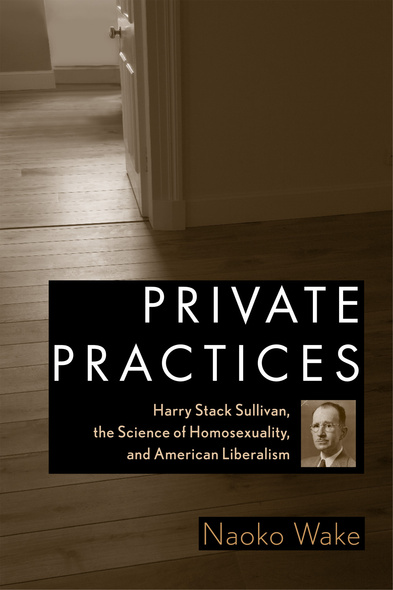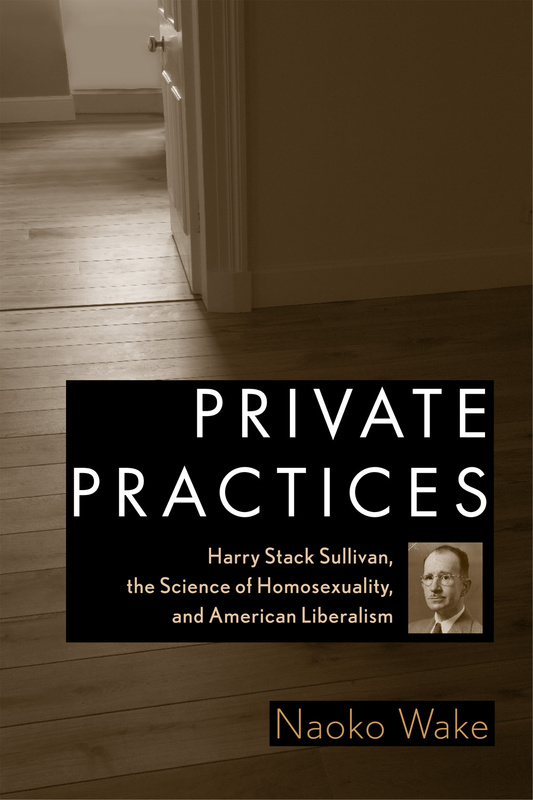Private Practices
Harry Stack Sullivan, the Science of Homosexuality, and American Liberalism
Private Practices examines the relationship between science, sexuality, gender, race, and culture in the making of modern America between 1920 and 1950, when contradictions among liberal intellectuals affected the rise of U.S. conservatism. Naoko Wake focuses on neo-Freudian, gay psychiatrist Harry Stack Sullivan, founder of the interpersonal theory of mental illness. She explores medical and social scientists' conflicted approach to homosexuality, particularly the views of scientists who themselves lived closeted lives.
Wake discovers that there was a gap--often dramatic, frequently subtle--between these scientists' "public" understanding of homosexuality (as a "disease") and their personal, private perception (which questioned such a stigmatizing view). This breach revealed a modern culture in which self-awareness and open-mindedness became traits of "mature" gender and sexual identities. Scientists considered individuals of society lacking these traits to be "immature," creating an unequal relationship between practitioners and their subjects. In assessing how these dynamics--the disparity between public and private views of homosexuality and the uneven relationship between scientists and their subjects--worked to shape each other, Private Practices highlights the limits of the scientific approach to subjectivity and illuminates its strange career--sexual subjectivity in particular--in modern U.S. culture.
Wake offers a balanced and penetrating study of Harry Stack Sullivan, one that integrates both his private life and his public career.
Private Practices takes up important issues and offers an analysis of Sullivan that will be useful not only to historians of psychiatry and the social sciences but also to philosophers of science, bioethicists, and anyone interested in twentieth-century gender and sexuality.
A well-written, tantalizingly ambitious, and rich reading that offers numerous insights into the development of social scientific thought on homosexuality, the new psychiatry, interwar liberalism, private treatment practices at Sheppard–Pratt, and the life of Harry Stack Sullivan.
Abbreviations
Introduction
1 A Man, a Doctor, and His Patients
2 Illness Within a Hospital and Without
3 Life History for Science and Subjectivity
4 Homosexuality: The Stepchild of Interwar Liberalism
5 The Military, Psychiatry, and "Unfit" Soldiers
6 "One-Man" Liberalism Goes to the World
Notes
Index
About the Author





